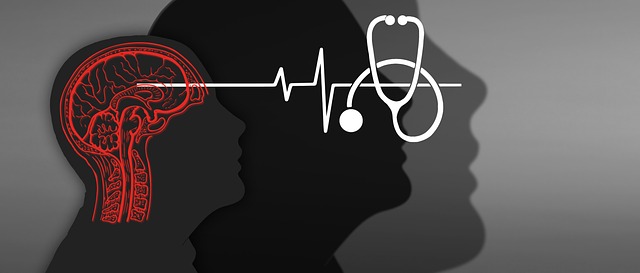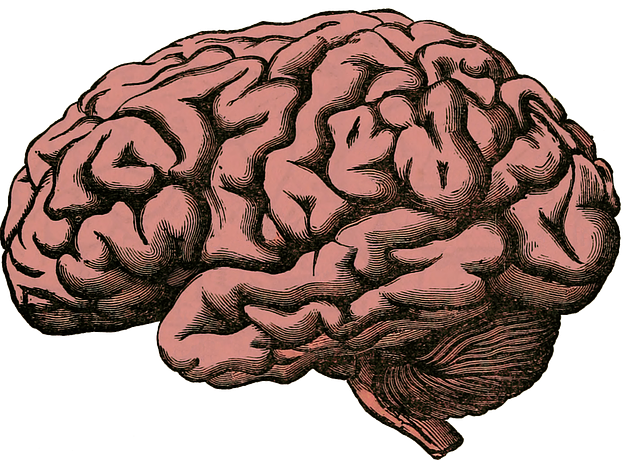Mental wellness involves emotional, psychological, and social well-being, not just the absence of illness. Prioritizing it in today's stressful world is crucial through methods like Cognitive Behavioral Therapy (CBT), which changes negative thought patterns, and self-care practices tailored to individual needs. Incorporating CBT techniques into routines, such as mindfulness meditation and wellness podcasts, improves mood and holistic mental health. A dynamic self-care routine includes daily calming activities and evolves with changing needs, leveraging resources like trauma support services and workshops for enhanced coping strategies.
“Unwind, rejuvenate, and embrace a healthier mind with our comprehensive guide to crafting a personalized mental wellness self-care routine. In today’s fast-paced world, prioritizing mental health is paramount. This article delves into the transformative power of self-care, offering insights on understanding mental wellness and its profound impact. We explore individual needs, integrate CBT techniques for adults, and provide practical steps to create a sustainable daily routine. Discover how cognitive behavioral therapy can empower you to navigate life’s challenges with resilience.”
- Understanding Mental Wellness and Its Importance
- Uncovering Your Individual Needs for Self-Care
- Integrating Cognitive Behavioral Therapy (CBT) Techniques
- Crafting Your Daily Routine: Practical Steps
- Sustaining and Adjusting Your Self-Care Routine Over Time
Understanding Mental Wellness and Its Importance

Mental wellness is a crucial aspect of overall well-being, encompassing our emotional, psychological, and social health. It affects how we think, feel, and act in various aspects of life. Understanding mental wellness involves recognizing that it’s not just the absence of mental illness but also about fostering positive thoughts, behaviors, and connections. In today’s fast-paced world, where stress and pressure are prevalent, prioritizing mental wellness is essential for maintaining a healthy and fulfilling life.
Cognitive Behavioral Therapy (CBT) is one approach that has gained significant popularity in therapy for adults. CBT focuses on identifying and changing negative thought patterns and behaviors, empowering individuals to develop coping strategies for managing stress, anxiety, and depression. Moreover, Mental Wellness Coaching Programs and Development, along with well-designed Mental Health Education Programs, can play a pivotal role in equipping people with the tools to nurture their mental health. Empathy Building Strategies are also vital, fostering understanding and connection, which can significantly contribute to an individual’s overall mental wellness journey.
Uncovering Your Individual Needs for Self-Care

Uncovering your individual needs for self-care is a crucial step in prioritizing mental wellness. Every person’s journey to self-care looks different, shaped by their unique experiences, lifestyle, and psychological makeup. For many, it involves exploring therapeutic avenues like Cognitive Behavioral Therapy (CBT), which targets specific thoughts, feelings, and behaviors to enhance emotional well-being. CBT is a highly effective tool for managing stress, anxiety, and even trauma, offering tailored strategies for coping with life’s challenges.
Understanding your personal triggers and what brings you peace is key. Some may find solace in structured activities like yoga or meditation, while others benefit from creative outlets like journaling or art therapy. Trauma Support Services, Stress Management Workshops organized by mental health advocacy groups, and Coping Skills Development programs can all play a significant role in helping individuals discover and implement personalized self-care routines. These resources provide valuable tools and support for navigating the complexities of mental wellness.
Integrating Cognitive Behavioral Therapy (CBT) Techniques

Incorporating Cognitive Behavioral Therapy (CBT) techniques into a self-care routine can be a powerful tool for adults seeking to enhance their mental wellness. CBT focuses on identifying and changing negative thought patterns, which in turn influences emotions and behaviors. By learning to challenge and reframe distorted thinking, individuals can develop healthier coping mechanisms, ultimately leading to improved mood and overall well-being. This therapy for adults encourages active participation in managing one’s mental health, making it a versatile self-care strategy.
Stress reduction methods, such as mindfulness meditation, are often integrated with CBT techniques to promote relaxation and enhance focus. Regular practice of these stress reduction methods allows individuals to cultivate present-moment awareness, which is key to countering rumination and anxious thoughts. Additionally, listening to mental wellness podcast series production can provide valuable insights and support while engaging in self-care rituals. These podcasts often offer practical tips and strategies for incorporating CBT techniques into daily life, fostering a holistic approach to mental health management.
Crafting Your Daily Routine: Practical Steps

Creating a daily mental wellness self-care routine is a transformative journey that requires dedication and mindfulness. Start by identifying your current habits and areas where you can integrate calming activities. For instance, setting aside dedicated time for relaxation, such as 15 minutes of meditation or a gentle walk in nature, can significantly reduce stress levels. Incorporate these practices consistently, treating them as non-negotiable appointments with yourself.
Consider incorporating techniques from cognitive behavioral therapy (CBT), which has proven effective in managing adult anxiety and depression. Simple strategies like reframing negative thoughts or engaging in grounding exercises during stressful moments can make a profound difference. Additionally, public awareness campaigns around mental health and trauma support services can offer valuable insights and resources, fostering a supportive environment for your journey towards enhanced mental wellness.
Sustaining and Adjusting Your Self-Care Routine Over Time

Maintaining a mental wellness self-care routine is an ongoing process that requires dedication and flexibility. As you progress in your journey, it’s essential to reflect on what’s working and make adjustments as needed. Just like cognitive behavioral therapy helps adults navigate and change unhelpful thought patterns, your self-care routine should evolve to meet your changing needs. Regularly assess your emotional state and the demands of your life; incorporate new activities that promote mental health awareness and stress management, and bid farewell to those that no longer serve you.
Consider participating in stress management workshops or joining a supportive organization to enhance your coping strategies. Over time, a balanced self-care routine becomes an integral part of your lifestyle, ensuring resilience against life’s challenges. Embrace the fluidity of this process, allowing yourself to adapt and grow while prioritizing your mental wellness.
Developing a personalized mental wellness self-care routine is a powerful tool for enhancing overall well-being. By understanding the significance of mental health and identifying your unique needs, you can create a nurturing practice. Integrating evidence-based techniques like Cognitive Behavioral Therapy (CBT) allows for effective management of thoughts and emotions. Through practical steps, this article has guided readers in crafting a daily routine tailored to their specific requirements. Remember, consistency is key; regularly reviewing and adjusting your self-care routine will ensure its longevity, fostering sustained mental wellness. With dedication, you can revolutionize your mental health journey, embracing a balanced and fulfilling life.














